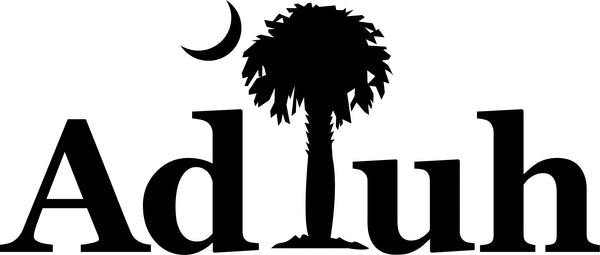Our History
In 1911, Columbia Grain and Provision Company was converted from a sole proprietorship and incorporated with capital stock of $25,000. B R Cooner was installed as president & treasurer and Marion M Platt as vice-president & secretary. Platt was previously a wholesale fruit and produce sales person for the E M Dupre Company. Then, in 1912, Jesse H Hardin, formerly with Moffat Grocery Company in Chester, SC, moved to Columbia and joined Columbia Grain and Provision Co as clerk and bookkeeper.
B R Cooner had seen a need to have a grain mill within South Carolina to serve local farmers and keep them from having to process their grain products out of the state. So, the Adluh Milling Company was formed in 1914 with Cooner as president/treasurer and Jesse Hardin as secretary. By September of 1914 Adluh Milling Company had occupied a building at the rear of 804 Gervais Street which was 198 feet in length and 94 feet wide with half of the building being three stories high. The new mill’s capacity was “1,200 bushels of meal and 60 tons of horse, cattle, dairy, hog and poultry feed”. The building, which was adjacent to the Southern Freight yards, was behind the Thomas and Howard wholesale grocery business at 804 Gervais Street.
The previous year, in 1913, the Columbia Shriners had formed a drum corps
to accompany the club and represent them at events throughout the state.
Pierre Mazyck, a single parent whose only child was a daughter named
Hulda, was named captain of the Shriners’ drum corps. Mazyck named it
the Adluh Drum Corps using the reverse spelling of his daughter’s first
name. Eight-year-old Hulda Mazyck became the sponsor of the drum corps
and led their procession when they performed at parades and other events. Cooner, who was a Shriner, liked the name and asked Pierre Mazyck if he could use it as the name of his new company. Pierre and Hulda were flattered and agreed. So, in 1914, the “little girl with big blue eyes and a head covered with bright golden curls” became the namesake for the new Adluh Milling Company. Then in 1915, as an additional salute to Hulda Mazyck and the Adluh Drum Corps, the company began using a logo on its products that displayed the image of a drum with the likeness of a girl in its center. A pair of crossed drumsticks were added to the top of the logo by the mid-1930s.
In 1920, it was announced that Columbia Grain & Provision Company
would be consolidated into Adluh Milling Company. The process of consolidation apparently took three years and Columbia Grain and Provision Company was officially dissolved in December 1923.
Apparently, the aggressive expansion during 1919 and 1920 took its toll on the company financially. In July of 1924, under pressure from creditors, the Adluh Milling Company was declared bankrupt by the US District Court and the plant was closed. The property was tied up for two years by several civil court actions until, in June of 1926, it was put up for bankruptcy sale by the receiver, J R McMullan, representing the National Loan and Exchange Bank. Later that summer, it was announced that Allen Brothers Milling Co of Wadesboro, NC had purchased the Adluh Mill which they brought to full operations by August 23 with an increased capacity for flour from 150 to 200 barrels per day.
The Adluh brand Cooner created was retained by Allen Brothers Milling
Company which operates at 804 Gervais Street to the present day. The Allen Brothers’ Adluh Flour Mill is South Carolina’s only operational flour mill and the plant is listed on the National Register of Historic places. Their products may also be enjoyed at restaurants throughout the United States.
